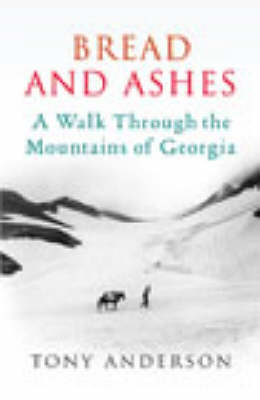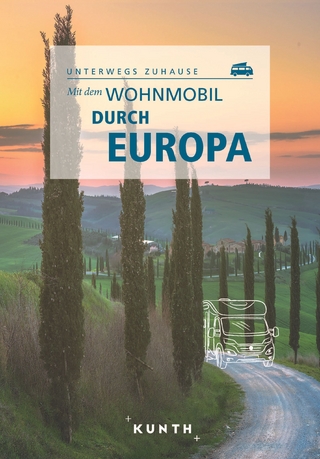
Bread And Ashes
Seiten
2003
Jonathan Cape Ltd (Verlag)
978-0-224-06300-5 (ISBN)
Jonathan Cape Ltd (Verlag)
978-0-224-06300-5 (ISBN)
- Titel ist leider vergriffen;
keine Neuauflage - Artikel merken
In 1998, Tony Anderson walked from the Caspian to the Black Sea, along the southern crest of the Caucasus. He found that Georgia, devastated time and again through history, has survived with a vibrant culture still intact and, in the mountains, still deeply connected to its ancient ways.
Tony Anderson set out in the summer of 1998 to walk from the Caspian to the Black Sea, along the southern crest of the Caucasus. He was pulled along in the wake of the many tribes and peoples who had passed through the mountains, leaving behind a whisper of their deeds and names. He wanted particularly to visit the Georgian mountain tribes - Pshavs, Toush, Khevsours, Ratchuelians and Svans - to discover if they shared a common culture and to test the old idea of the Caucasus as an impenetrable barrier from sea to sea, with ancient tribes living in isolation from the outside world. From Azerbaijan in the east to Svaneti in the west, Anderson found communities where the old customs and beliefs still triumphantly survive, despite years of communist oppression and the terrible uncertainties since the collapse of the Soviet Union. From Khevsoureti he crossed into Chechnia to hunt bear. In Ratcha he found a community of mountain Jews that had lived in the mountains since the exile from Babylon. Everywhere he met with great kindness - even in Svaneti, where he was robbed.
Throughout his journey Anderson refers back to many other visits to Georgia, to the politics of independence, to the war in Abkhazia and Osetia, to the civil war and Shevardnadze's accession to power, to the history of these people at one of the most significant crossroads of the world. One of the mysteries is how Georgia, devastated time and again by all the great vagabonds of history (Huns, Avars, Khazars, Lesghians, Mongols, Tartars) and torn between great empires (Greek, Roman, Byzantine, Persian, Turkish, Russian) has managed to survive. But survive it has with a vibrant culture still intact and, in the mountains, still deeply connected to its ancient ways.
Tony Anderson set out in the summer of 1998 to walk from the Caspian to the Black Sea, along the southern crest of the Caucasus. He was pulled along in the wake of the many tribes and peoples who had passed through the mountains, leaving behind a whisper of their deeds and names. He wanted particularly to visit the Georgian mountain tribes - Pshavs, Toush, Khevsours, Ratchuelians and Svans - to discover if they shared a common culture and to test the old idea of the Caucasus as an impenetrable barrier from sea to sea, with ancient tribes living in isolation from the outside world. From Azerbaijan in the east to Svaneti in the west, Anderson found communities where the old customs and beliefs still triumphantly survive, despite years of communist oppression and the terrible uncertainties since the collapse of the Soviet Union. From Khevsoureti he crossed into Chechnia to hunt bear. In Ratcha he found a community of mountain Jews that had lived in the mountains since the exile from Babylon. Everywhere he met with great kindness - even in Svaneti, where he was robbed.
Throughout his journey Anderson refers back to many other visits to Georgia, to the politics of independence, to the war in Abkhazia and Osetia, to the civil war and Shevardnadze's accession to power, to the history of these people at one of the most significant crossroads of the world. One of the mysteries is how Georgia, devastated time and again by all the great vagabonds of history (Huns, Avars, Khazars, Lesghians, Mongols, Tartars) and torn between great empires (Greek, Roman, Byzantine, Persian, Turkish, Russian) has managed to survive. But survive it has with a vibrant culture still intact and, in the mountains, still deeply connected to its ancient ways.
Tony Anderson was born in 1950, read English at Oxford, and has taught languages both in Britain and abroad. He has worked as an editor and writer for television, books and theatre, and has recently edited works on Russian/Caucasian subjects. He lives in Somerset.
| Erscheint lt. Verlag | 22.5.2003 |
|---|---|
| Verlagsort | London |
| Sprache | englisch |
| Gewicht | 664 g |
| Themenwelt | Reisen ► Bildbände ► Europa |
| Reisen ► Reiseberichte ► Europa | |
| Geisteswissenschaften ► Geschichte ► Regional- / Ländergeschichte | |
| ISBN-10 | 0-224-06300-6 / 0224063006 |
| ISBN-13 | 978-0-224-06300-5 / 9780224063005 |
| Zustand | Neuware |
| Haben Sie eine Frage zum Produkt? |
Mehr entdecken
aus dem Bereich
aus dem Bereich
Inspiration für ein ganzes Leben
Buch | Hardcover (2023)
DuMont Reiseverlag
39,90 €


